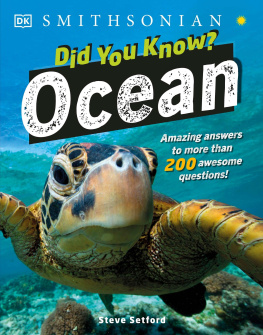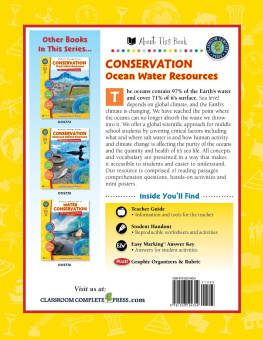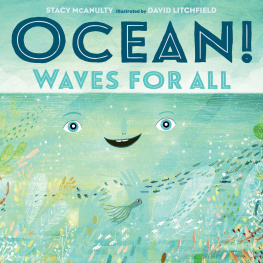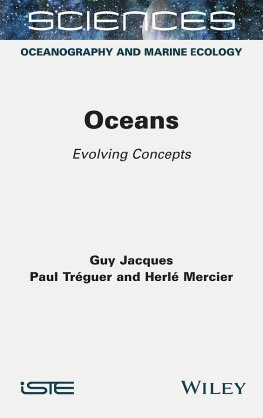The Geography of the Ocean
Despite the fact that the vast majority of the earths surface is made up of oceans, there has been surprisingly little work by geographers which critically examines the ocean-space and our knowledge and perceptions of it. This book employs a broad conceptual and methodological framework to analyse specific events that have contributed to the production of geographical knowledge about the ocean. These include, but are not limited to, Christopher Columbus first transatlantic journey, the mapping of nonexistent islands, the establishment of transoceanic trade routes, the discovery of large-scale water movements, the HMS Challenger expedition, the search for the elusive Terra Australis Incognita, the formulation of the theory of continental drift and the mapping of the seabed.
Using a combination of original, empirical (archival, material and cartographic), and theoretical sources, this book uniquely brings together fascinating narratives throughout history to produce a representation and mapping of geographical oceanic knowledge. It questions how we know what we know about the oceans and how this knowledge is represented and mapped. The book then uses this representation and mapping as a way to coherently trace the evolution of oceanic spatial awareness.
In recent years, particularly in historical geography, discovering and knowing the ocean-space has been a completely separate enterprise from discovering and colonising the lands beyond it. There has been such focus on studying colonised lands, yet the oceans between them have been neglected. This book gives the geographical ocean a voice to be acknowledged as a space where history, geography and indeed historical geography took place.
Anne-Flore Lalo, after graduating from the University of Exeter, was Curator of Historical Collections at the Marine Biological Association of the UK. Since January 2015, she has been Archivist at the European Molecular Biology Laboratory.
Studies in Historical Geography
Series Editor: Professor Robert Mayhew
University of Bristol, United Kingdom
Historical geography has consistently been at the cutting edge of scholarship and research in human geography for the last fifty years. The first generation of its practitioners, led by Clifford Darby, Carl Sauer, and Vidal de la Blache, presented diligent archival studies of patterns of agriculture, industry, and the region through time and space.
Drawing on this work, but transcending it in terms of theoretical scope and substantive concerns, historical geography has long since developed into a highly interdisciplinary field seeking to fuse the study of space and time. In doing so, it provides new perspectives and insights into fundamental issues across both the humanities and social sciences.
Having radically altered and expanded its conception of the theoretical underpinnings, data sources, and styles of writing through which it can practice its craft over the past twenty years, historical geography is now a pluralistic, vibrant, and interdisciplinary field of scholarship. In particular, two important trends can be discerned. First, there has been a major cultural turn in historical geography that has led to a concern with representation as driving historical-geographical consciousness, leading scholars to a concern with text, interpretation, and discourse rather than the more materialist concerns of their predecessors. Second, there has been a development of interdisciplinary scholarship, leading to fruitful dialogues with historians of science, art historians, and literary scholars in particular, which has revitalized the history of geographical thought as a realm of inquiry in historical geography.
Studies in historical geography aim to provide a forum for the publication of scholarly work, which encapsulates and furthers these developments. Aiming to attract an interdisciplinary and international authorship and audience, Studies in Historical Geography will publish theoretical, historiographical, and substantive contributions meshing time, space, and society.
First published 2016
by Routledge
2 Park Square, Milton Park, Abingdon, Oxon OX14 4RN
and by Routledge
711 Third Avenue, New York, NY 10017
Routledge is an imprint of the Taylor & Francis Group, an informa business
2016 Anne-Flore Lalo
The right of Anne-Flore Lalo to be identified as author of this work has been asserted by her in accordance with sections 77 and 78 of the Copyright, Designs and Patents Act 1988.
All rights reserved. No part of this book may be reprinted or reproduced or utilised in any form or by any electronic, mechanical, or other means, now known or hereafter invented, including photocopying and recording, or in any information storage or retrieval system, without permission in writing from the publishers.
Trademark notice: Product or corporate names may be trademarks or registered trademarks, and are used only for identification and explanation without intent to infringe.
British Library Cataloguing in Publication Data
A catalogue record for this book is available from the British Library
Library of Congress Cataloging in Publication Data
Names: Lalo, Anne-Flore, author.
Title: The geography of the ocean: knowing the ocean as a space /
by Anne-Flore Lalo.
Description: Farnham, Surrey, UK; Burlington, VT: Ashgate, 2016. |
Series: Studies in historical geography | Includes bibliographical
references and index.
Identifiers: LCCN 2015041448 (print) | LCCN 2015046650 (ebook) |
ISBN 9781409421436 (hardback: alk. paper) | ISBN 9781409421443
(ebook) | ISBN 9781472400857 (epub)
Subjects: LCSH: OceanHistory. | Ocean and civilization. |
Historical geography. | Discoveries in geographyHistory.
Classification: LCC GC29.L35 2016 (print) | LCC GC29 (ebook) |
DDC910.9162dc23
LC record available at http://lccn.loc.gov/2015041448
ISBN: 978-1-4094-2143-6 (hbk)
ISBN: 978-1-315-55774-8 (ebk)
Typeset in Times New Roman
by Apex CoVantage, LLC
1
Introduction
Human geographers have, overall, an ambiguous relationship with the ocean. At times, they ignore it, thereby reducing their study to the earths land surfaces; their geographical perspective thus finds itself incomplete and ignorant of what it might be missing. In other instances, coastlines are considered and their inherent liminality explored, both as regards what is found along it and on either side of it, though the ocean itself is not fully engaged with. In these cases, the ocean helps define the land or coast by opposition, saying what it is not. Finally, when thought is given to the ocean beyond its coasts, it is usually limited to specific discourses on environmental history, the plundering of oceanic resources or complex issues regarding territorial waters and, again, resources. In these instances, the ocean is considered primarily for what it contains or potentially contains, not as a space in itself. This materialistic approach divorces the ocean as a container of resources from the ocean as a space. The ocean itself, therefore, with its physical attributes, wavering surface, tidal rhythms and unbounded connectivity, and what these characteristics mean for human and nonhuman interrelations with it, are rarely at the center of human geographers oceanic engagement. Studies might capitalize on one of these aspects, either directly or metaphorically, but, on the whole, this means that the understanding of the geographical ocean generally falls short of engaging with the ocean as a geographical space. This book will address this issue and demonstrate that a wholly geographical study of the ocean is both possible and fruitful. Furthermore, it will show that such an approach enables geographers to engage critically with traditional geographical concerns such as mobility, governance, and cartography in novel ways that fully comprehend the specific mobilities, spatialities, and materialities of the ocean. This will reveal an ocean that can fully be a part of geographical discourse, rather than sitting at its fringes, and will crucially move toward a truly global sense of geography. This geographical ocean is what will be called the ocean-space.








